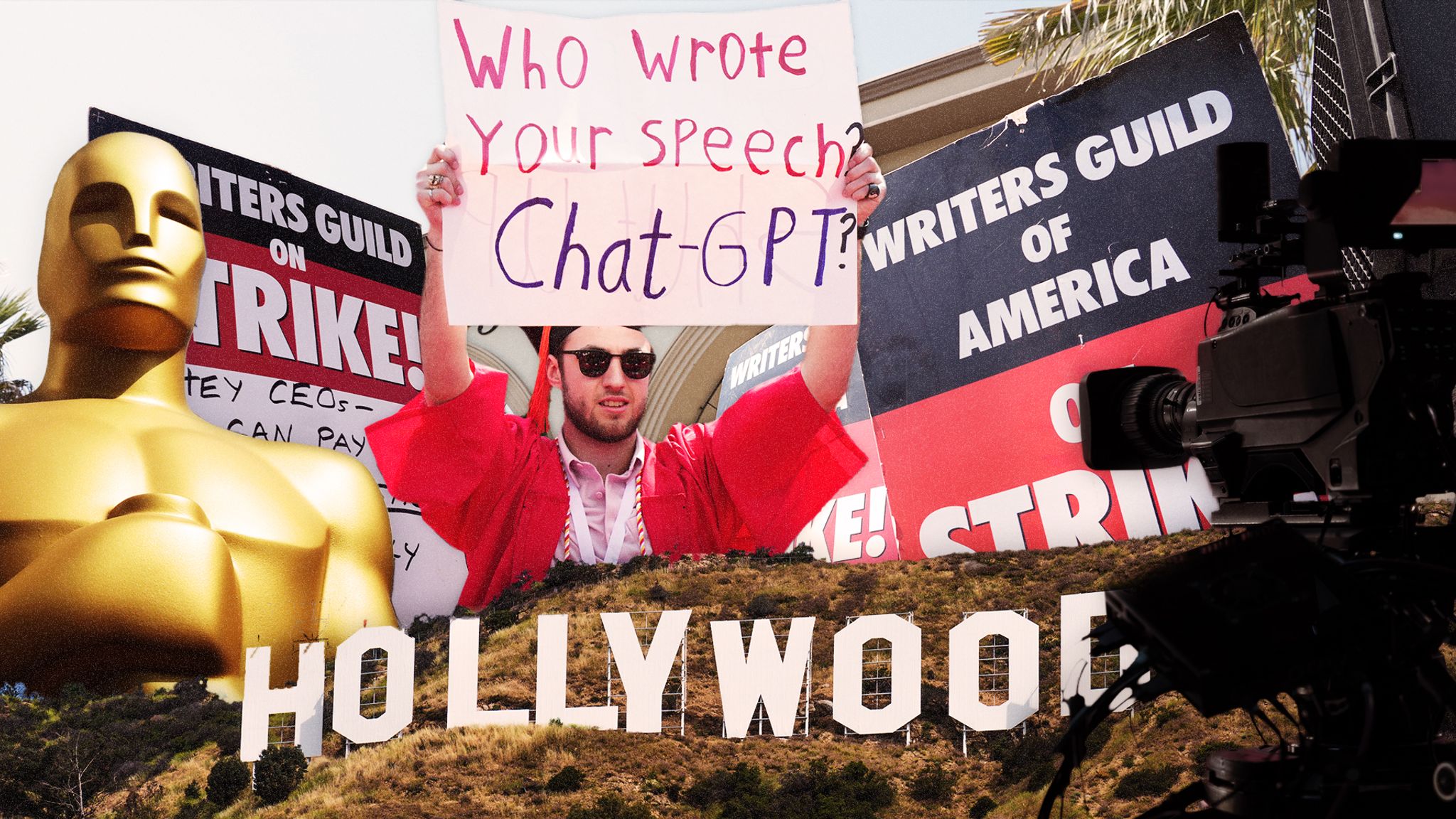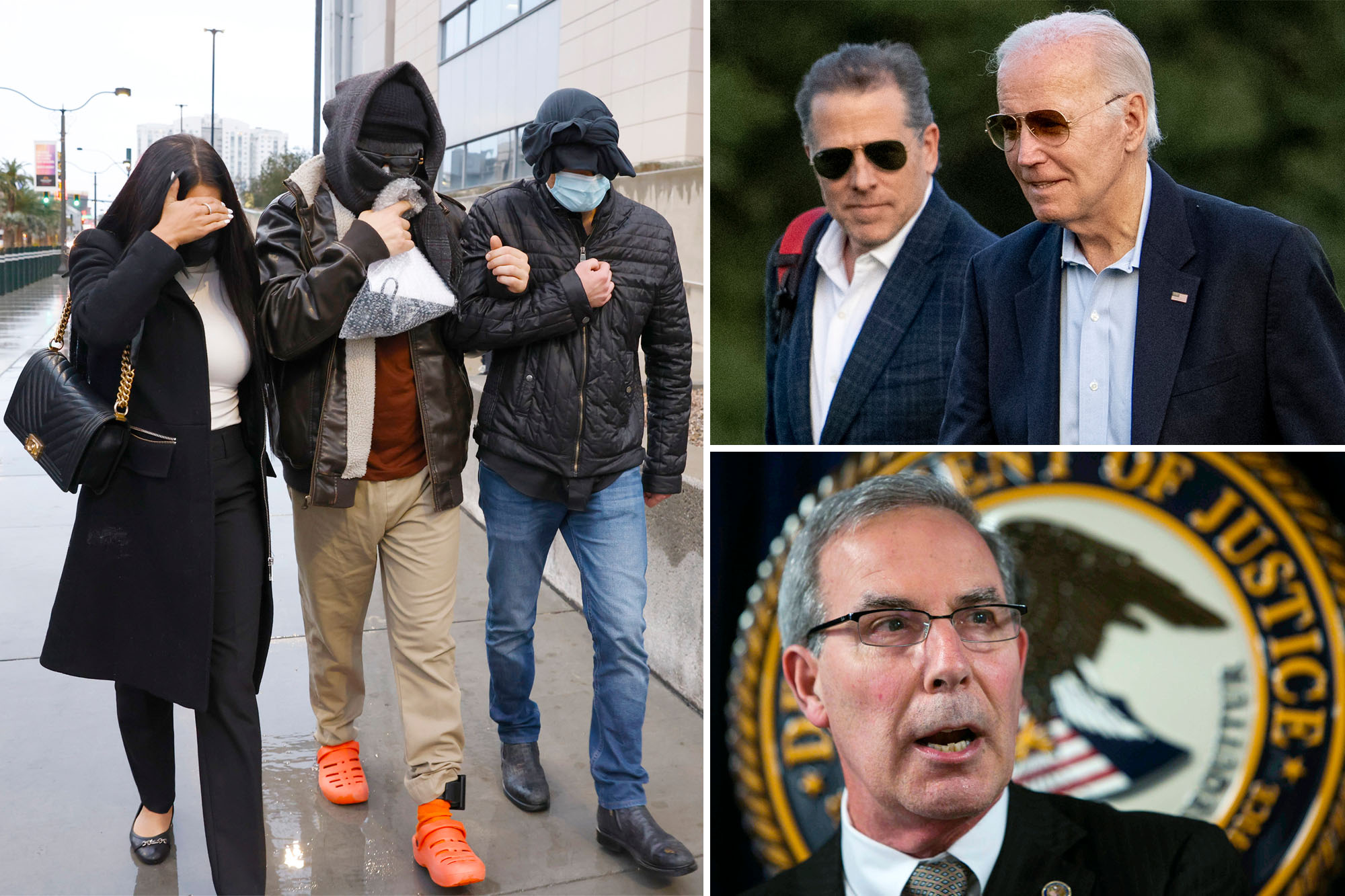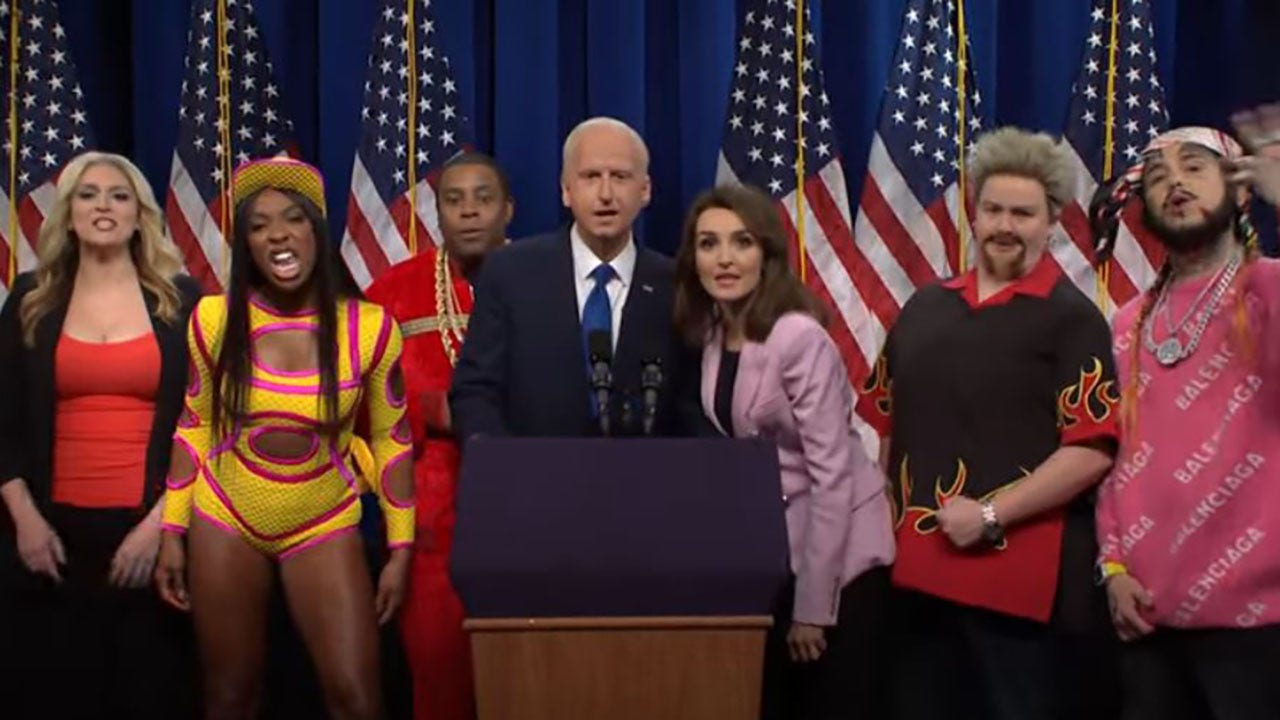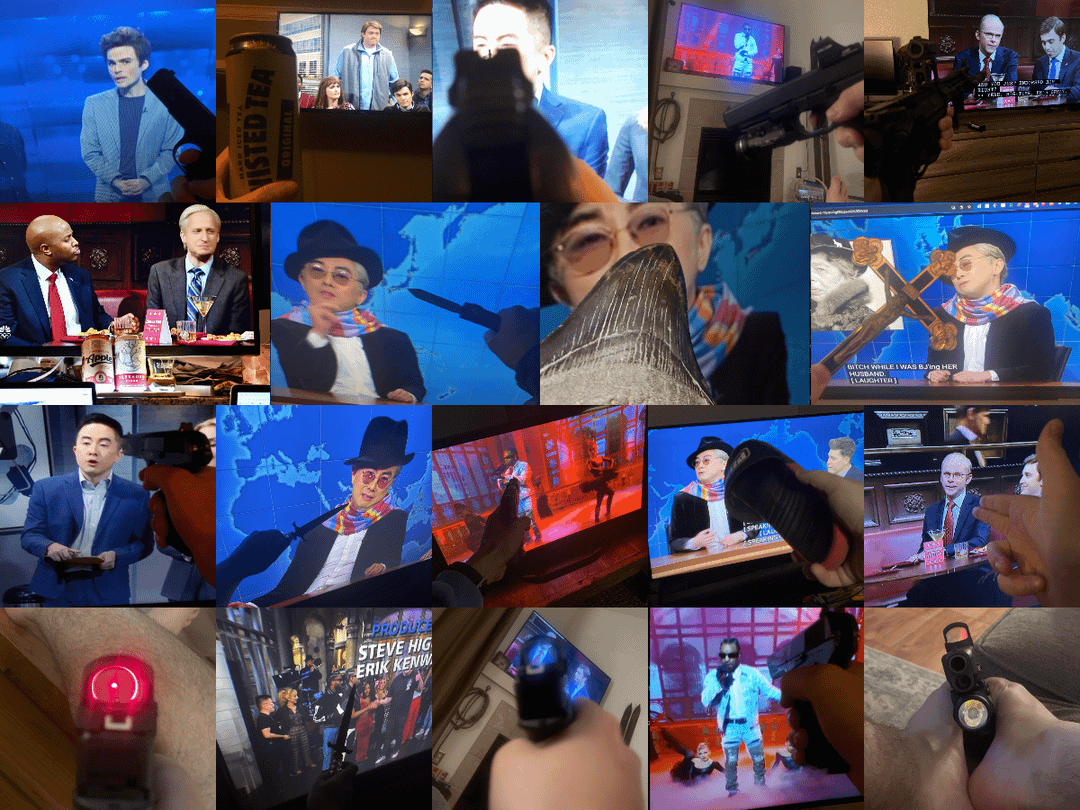Hollywood Shutdown: Writers And Actors On Strike — What It Means For Film And TV

Table of Contents
The Impact on Film and Television Production
The Hollywood strike has brought film and television production to a near standstill, creating a ripple effect throughout the industry.
Halted Productions
Countless productions have been indefinitely delayed or completely canceled. The economic impact extends far beyond the actors and writers themselves, affecting numerous crew members, technicians, and support staff.
- Major films affected: Deadpool 3, Gladiator 2, several Marvel projects, and numerous others have experienced significant delays.
- Television series impacted: Numerous late-night talk shows, network dramas, and streaming series have halted production, leaving broadcast schedules and streaming platforms with gaps in their programming.
- Economic Ripple Effect: The strike has caused widespread job losses and financial hardship for countless individuals who rely on the film and television industry for their livelihoods, including camera operators, grips, gaffers, and countless other essential crew members.
Post-Production Delays
The strike's impact extends beyond active filming. Post-production, including editing, sound mixing, visual effects, and scoring, is also significantly affected, leading to further delays in release dates.
- Affected Post-Production Stages: Actors' involvement in dubbing, ADR (Automated Dialogue Replacement), and promotional material is completely halted. This creates significant bottlenecks in the post-production pipeline.
- Release Date Delays: Many highly anticipated films and TV shows are experiencing significant delays in their release schedules, resulting in rearranged broadcast calendars and uncertain release windows for streaming platforms.
The Changing Landscape of Production
The strike may force studios to explore alternative production models to mitigate the impact of the work stoppage.
- Increased Focus on Animation: Animation projects, which are less reliant on live-action actors, might see a surge in production.
- International Productions: Studios might shift production to countries where labor laws are more favorable or where strikes are less likely.
- Long-Term Impact: The strike's aftermath could reshape production workflows and budgetary considerations, potentially leading to new contracts and negotiations designed to address the issues raised by the WGA and SAG-AFTRA.
The Effects on Streaming Services
The Hollywood shutdown is having a profound impact on streaming services, disrupting their content pipelines and potentially affecting subscriber engagement.
Content Shortages
The lack of new content is causing noticeable gaps in streaming platforms' offerings.
- Affected Streaming Platforms: Netflix, Disney+, HBO Max, Amazon Prime Video, and Apple TV+ are all experiencing content shortages.
- Increased Reliance on Older Content: Streaming services are increasingly relying on their libraries of older shows and films to fill the void. Unscripted programming is also gaining more prominence in many platforms' lineups.
Financial Implications
Production delays and reduced subscriber engagement could result in substantial financial losses for streaming giants.
- Stock Market Response: The strike has had a noticeable impact on the stock prices of major entertainment companies.
- Increased Investment in International Content: Streaming services are likely to increase their investment in international productions to compensate for the shortfall in US-based content.
Changes in Streaming Strategy
The strike may force streaming platforms to reassess their content strategies.
- Stronger Relationships with Independent Studios: Streaming services might seek closer collaborations with smaller, independent studios that may be less affected by the strike.
- Impact on Marketing and Promotion: Marketing and promotion strategies for upcoming releases may need significant adjustments to reflect the delayed production schedules and content shortages.
The Writers' and Actors' Demands and the Future of the Industry
The WGA and SAG-AFTRA strikes are driven by key issues that threaten the livelihoods and creative control of writers and actors.
Key Issues
The core demands revolve around fair compensation, residuals in the streaming era, and protections against the use of AI in creative work.
- Fair Wages: The unions are seeking fairer compensation to reflect the changing landscape of the entertainment industry, particularly the dominance of streaming platforms.
- Streaming Residuals: Traditional residuals models have been largely undermined by streaming platforms, leading to significant income loss for writers and actors.
- AI Protections: The unions are calling for safeguards to prevent the misuse of AI in the creation of creative content, which could threaten the jobs and livelihoods of writers and actors.
AI and the Creative Process
The increasing use of AI in creative fields has raised concerns about job security and the future of creativity.
- Intellectual Property Concerns: Unregulated AI usage poses significant risks to intellectual property rights and the ownership of creative work.
- Proposed Solutions: The unions are proposing solutions to mitigate the risks of AI misuse while still allowing for its responsible integration into the creative process.
Long-Term Impacts on the Industry
The Hollywood strike could have profound long-term effects on working conditions, industry practices, and the creative landscape.
- Contract Negotiations and Industry Standards: The strike could lead to significant changes in contract negotiations and industry standards to better protect the rights and livelihoods of writers and actors.
- Improved Protections in the Digital Age: The outcome of the strike could establish a new framework for protecting writers and actors in the digital era.
Conclusion: Hollywood Shutdown: A Turning Point for Film and TV?
The Hollywood shutdown has had a significant impact on film and television production, streaming services, and the livelihoods of countless individuals. The strike highlights crucial issues regarding fair wages, residuals, and the use of AI in creative fields. The long-term effects on the industry remain to be seen, but the strike represents a pivotal moment, forcing essential conversations about fair compensation, creative control, and the future of entertainment in the digital age. The writers' strike and actors' strike are shaping the future of film and television; stay tuned for updates on the Hollywood shutdown and the ongoing negotiations that will shape the future of film and television. The Hollywood strike is more than just a work stoppage; it's a potential turning point, forcing conversations about fair compensation and the future of entertainment.

Featured Posts
-
 Quebec Labour Tribunal To Hear Case On Amazon Warehouse Closures And Worker Unionization
May 18, 2025
Quebec Labour Tribunal To Hear Case On Amazon Warehouse Closures And Worker Unionization
May 18, 2025 -
 Amanda Bynes Former Classmate Details Troubling Past Behavior
May 18, 2025
Amanda Bynes Former Classmate Details Troubling Past Behavior
May 18, 2025 -
 Is Taylor Swifts Reputation Taylors Version Finally Coming A Look At The Recent Teaser
May 18, 2025
Is Taylor Swifts Reputation Taylors Version Finally Coming A Look At The Recent Teaser
May 18, 2025 -
 Australian Man Sentenced To 13 Years In Russian Prison For Fighting In Ukraine
May 18, 2025
Australian Man Sentenced To 13 Years In Russian Prison For Fighting In Ukraine
May 18, 2025 -
 American Manhunt Osama Bin Laden Review A Critical Analysis Of The Hunt
May 18, 2025
American Manhunt Osama Bin Laden Review A Critical Analysis Of The Hunt
May 18, 2025
Latest Posts
-
 Snl Spoofs Signal Leak With Mikey Madison Texting Government Officials
May 18, 2025
Snl Spoofs Signal Leak With Mikey Madison Texting Government Officials
May 18, 2025 -
 Mikey Madisons Snl Cold Open A Signal Group Chat Parody
May 18, 2025
Mikey Madisons Snl Cold Open A Signal Group Chat Parody
May 18, 2025 -
 Mikey Madison Texts Government Officials In Snls Signal Chat Spoof Cold Open
May 18, 2025
Mikey Madison Texts Government Officials In Snls Signal Chat Spoof Cold Open
May 18, 2025 -
 Snl Parodies Signal Leak With Mikey Madison Texting Government Officials
May 18, 2025
Snl Parodies Signal Leak With Mikey Madison Texting Government Officials
May 18, 2025 -
 West Palm Beach Students On The New Pope Intentions And Expectations For The Catholic Church
May 18, 2025
West Palm Beach Students On The New Pope Intentions And Expectations For The Catholic Church
May 18, 2025
